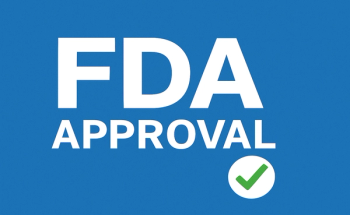
The FDA approved revumenib for relapsed/refractory (R/R) acute myeloid leukemia, offering a new targeted therapy option for patients with NPM1 mutations.

Laura Joszt, MA, is the vice president of content for the managed care and pharmacy brands at MJH Life Sciences®, which includes The American Journal of Managed Care®, Managed Healthcare Executive®, Pharmacy Times®, and Drug Topics®. She has been with MJH Life Sciences since 2011.
Laura has an MA in business and economic reporting from New York University. You can connect with Laura on LinkedIn or Twitter.

The FDA approved revumenib for relapsed/refractory (R/R) acute myeloid leukemia, offering a new targeted therapy option for patients with NPM1 mutations.
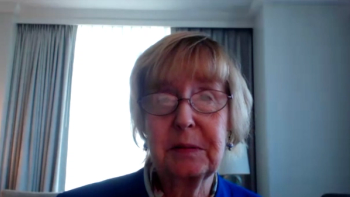
Elinzanetant offers a promising alternative to hormone therapy for women seeking relief from menopause symptoms, said JoAnn V. Pinkerton, MD.

A novel combination therapy enhances the effectiveness of proteasome inhibitors against acute myeloid leukemia (AML), improving survival rates in preclinical models.
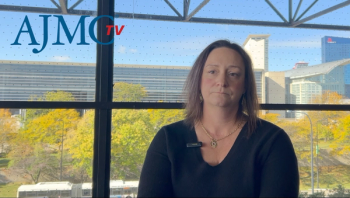
Dedicated COPD respiratory therapists can improve inhaler use, ensure adherence, and bridge care transitions, explained Megan Dulohery Scrodin, MD.

Assessing all available nonhormonal and hormonal therapies for vasomotor symptoms helps empower women to make informed decisions, said Lee Shulman, MD.
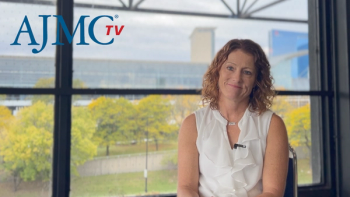
Digitized behavioral cough suppression therapy is a safe, highly effective, and accessible alternative to drugs for chronic cough, said Laurie Slovarp, PhD.
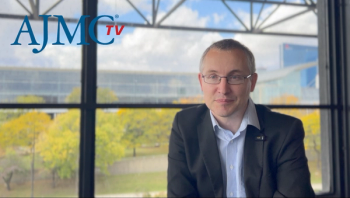
CT scans can play a role not just in diagnosing but also in monitoring non–cystic fibrosis bronchiectasis management, explained James D. Chalmers, MD.
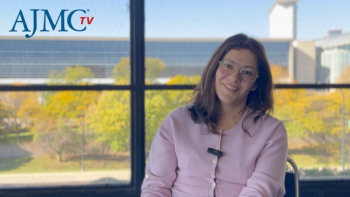
Inhaled corticosteroids pose long-term risks in COPD management, prompting careful screening and potential de-escalation strategies, said Sara Assaf, MD.

Counseling patients with obstructive sleep apnea on using GLP-1s effectively prior to starting treatment can help ensure adherence, said Matthew Biszewski, PharmD.

Cemiplimab has been approved as the first immunotherapy for high-risk cutaneous squamous cell carcinoma (CSCC), significantly improving disease-free survival rates.

Amivantamab plus lazertinib enhances survival in NSCLC but requires complex care compared with osimertinib, explained Danny Nguyen, MD, of City of Hope.

The Trump administration advances the Most Favored Nation order by partnering with Pfizer, which came to the table voluntarily and has been granted a reprieve from upcoming drug tariffs.

The evolving treatment landscape for unfit patients with newly diagnosed acute myeloid leukemia (AML) centers on venetoclax combination and personalized strategies.

Patients with acute myeloid leukemia (AML) in remission for over 3 years experience survival rates comparable with a matched cohort from the general population.

The combination of amivantamab and lazertinib in first-line non–small cell lung cancer (NSCLC) significantly reduces resistance mechanisms with implications for second-line treatment, said Danny Nguyen, MD, of City of Hope.
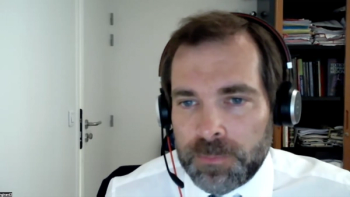
The subcutaneous dose had comparable efficacy to intravenous dosing while enhancing patient convenience in non–small cell lung cancer, explains Nicolas Girard, MD, PhD.
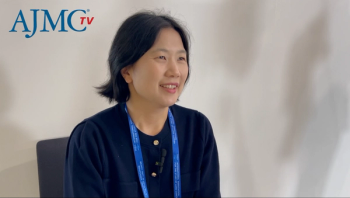
Subcutaneous amivantamab plus chemotherapy offers an equally effective treatment for EGFR exon 20 insertion non–small cell lung cancer (NSCLC), mirroring PAPILLON results of the intravenous formulation, explained Sun Lim Min, MD, PhD.
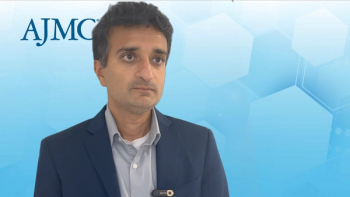
Disparities in lung cancer biomarker testing show barriers that delay diagnosis and treatment for lower-income patients, according to Sandip P. Patel, MD.
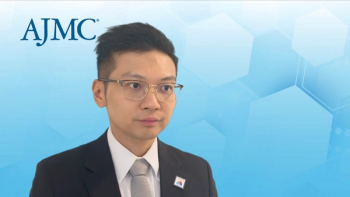
Personalized testing is preferred for patients with NSCLC with mutations, but there are challenges to implementing this testing, said Yang Xia, MD, PhD.

Pediatric dermatology faces access disparities due to lack of awareness, language barriers, and training gaps in recognizing diverse skin conditions.

Broad COVID-19 vaccination proves economically beneficial, especially for older adults, highlighting significant health and financial advantages.

Artificial intelligence (AI) and socioeconomic factors enhance risk stratification for patients with acute myeloid leukemia (AML) post transplant, aiming to reduce hospital readmissions and disease progression.

Glucagon-like peptide-1 (GLP-1) receptor agonists show promise in reducing hidradenitis suppurativa severity and pain, especially in patients with obesity.

Accessing pediatric dermatology care is challenging due to a shortage of specialists and general dermatologists' reluctance to treat children, but increasing their comfort level with seeing children could help bridge the gap, explained Elizabeth Garcia Creighton, of University of Colorado School of Medicine.


During the Addressing Cardiovascular Risk and Intervening Early webinar, experts discussed innovative strategies for cardiovascular disease prevention, emphasizing risk assessment, lifestyle changes, and collaborative care to improve patient outcomes.

Obecabtagene autoleucel (obe-cel) is shown to be effective and safe for older adults with relapsed/refractory (R/R) B-cell acute lymphoblastic leukemia (ALL), while brexucabtagene autoleucel's (brexu-cel) expansion predicts durable remission.

In a webinar, experts discussed cardiovascular disease prevention strategies, emphasizing personalized risk assessments and emerging treatments to combat this health crisis.

Pediatric hidradenitis suppurativa faces diagnostic delays and stigma, while adalimumab shows superior drug survival compared with infliximab in children.
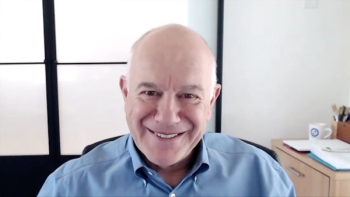
Revumenib is now the sole targeted therapy recommended by the National Comprehensive Cancer Network for KMT2A-rearranged acute leukemia, which opens a path for payers, said Ivo Abraham, PhD, RN, of The University of Arizona.

259 Prospect Plains Rd, Bldg H
Cranbury, NJ 08512
© 2025 MJH Life Sciences®
All rights reserved.
